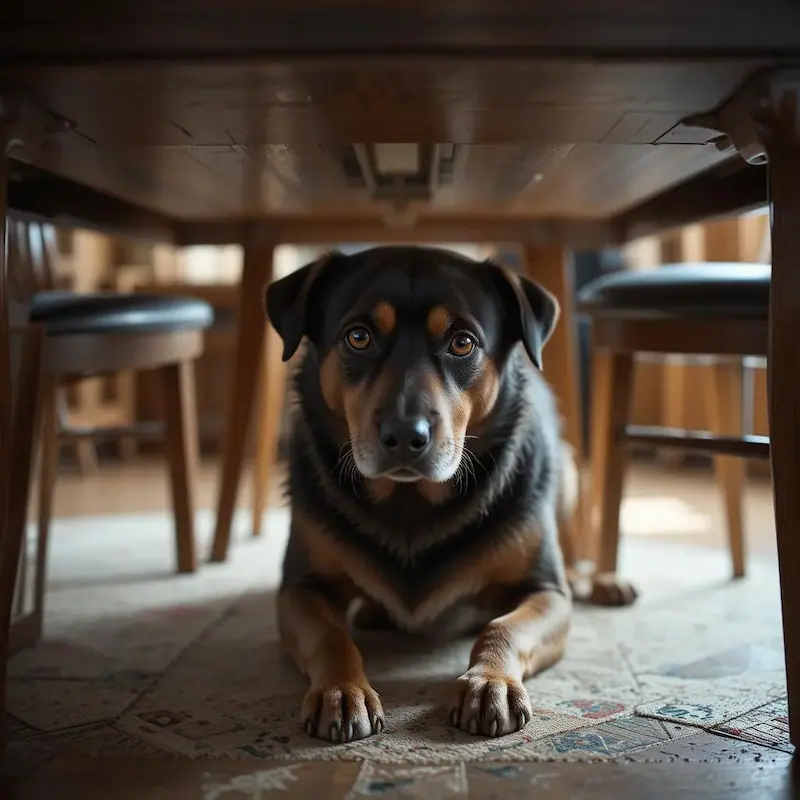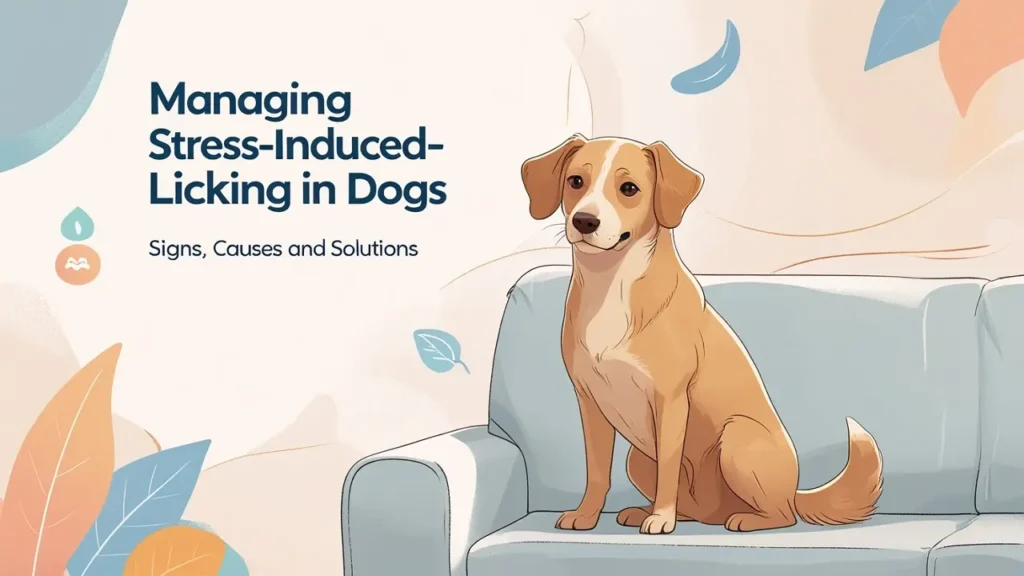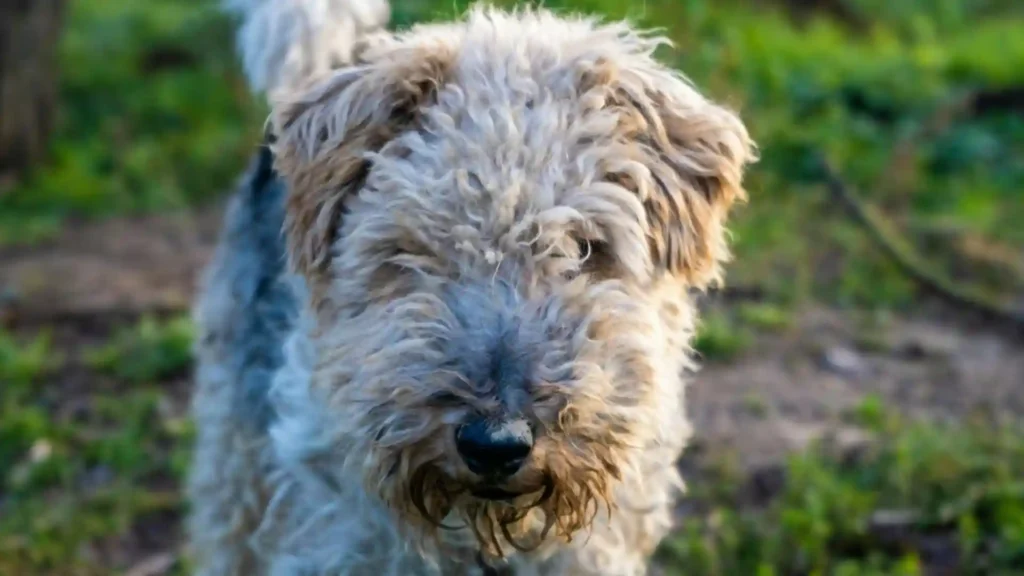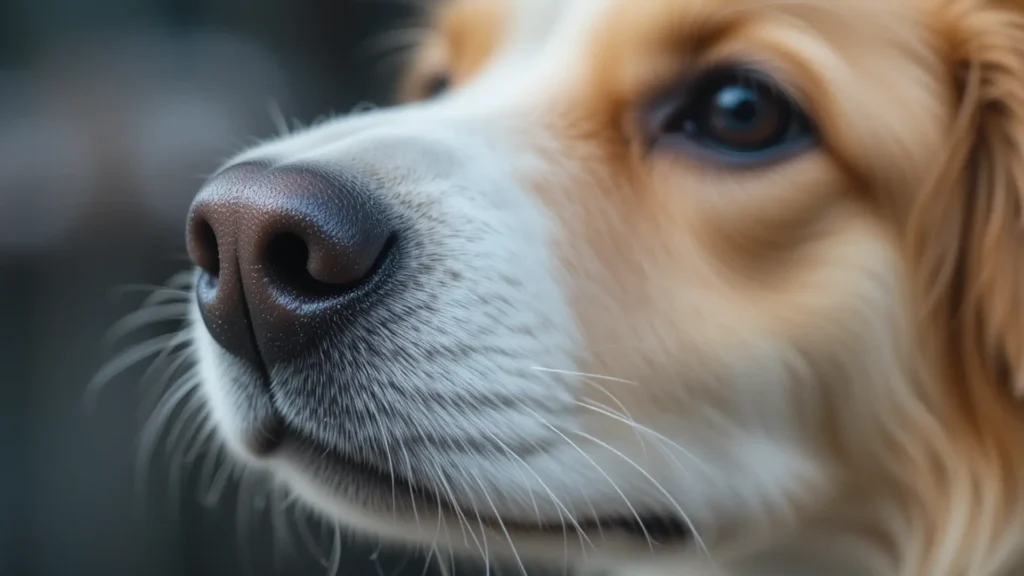Stress-induced licking can be a sign of emotional or physical discomfort. As responsible pet owners, it’s crucial to understand the causes, recognize the signs, and provide effective solutions to help our dogs cope with anxiety.
In this article, we’ll explore the factors that contribute to stress in dogs, how to identify stress-induced licking, and practical strategies for managing and reducing the behavior to ensure your dog’s overall well-being.
Signs of Stress-Induced Licking
Licking of Paws or Limbs
A dog might excessively lick or chew on their paws, legs, or other body parts. This can sometimes be a self-soothing mechanism to alleviate stress or anxiety.
Dogs lick their paws due to stress. There are many factors behind this –
- Licking has a calming effect on dogs.
- Dogs that are anxious or stressed may engage in behaviors like paw licking to distract themselves from the stressful situation or environment.
- Stress leads to repetitive behaviors like paw licking because dogs start to associate licking with relief from stress.
- Stress can cause physical symptoms in dogs, like itching, discomfort, or hypersensitivity to touch. In such cases, a dog licks their paws to relieve physical symptoms caused by emotional strain.
- Dogs that experience prolonged stress, such as boredom or frustration, may start to lick their paws as a way of managing their pent-up energy.
Over time, excessive licking of the paws can lead to redness, swelling, and irritation. In severe cases, it can cause abrasions or infections, known as hot spots, which are areas of the skin that become inflamed due to constant licking or chewing.
If the behavior becomes compulsive, the dog may even start licking until their paws are raw, which can lead to more significant dermatological issues.
Licking of Surfaces
In some cases, a stressed dog lick surfaces, such as furniture, floors, or even walls. This unusual behavior can stem from anxiety or a desire to focus on something repetitive to alleviate nervous energy.
Here are several reasons why dogs may lick surfaces when they are stressed:
- The act of licking surfaces releases endorphins (the “feel-good” chemicals). Endorphins helps reduce feelings of anxiety or stress.
- Licking surfaces can serve as a distraction from whatever is causing the dog’s anxiety or stress.
- Dogs do this due to lack of mental stimulation
- They do this to attract the attention of the owners.
- Dogs lick surfaces because they feel the need to explore or engage with their surroundings when they are feeling uneasy.
This is not harmful. But excessive licking cause saliva buildup or wet spots, and could lead to possible ingestion of non-food materials, which can pose a choking hazard or result in digestive issues.
Excessive Grooming
Stressed dogs may engage in constant grooming or licking their coat. This leads to a reduction in the coat’s luster and cause hair loss, particularly in the areas that are most frequently licked.
Excessive grooming as a coping mechanism to manage anxiety, discomfort, or emotional distress. Here are several reasons why stress may induce excessive grooming in dogs:
- Nail-biting or pacing reduce stress in humans. Dogs use grooming as a way to soothe themselves.
- Dogs turn to grooming as a way to redirect their anxiety or nervous energy.
- Compulsive grooming in dogs become a way to cope with chronic anxiety or boredom.
- Dogs groom excessively to relieve discomfort from skin allergy, dry skin, or hot spots.
This self-grooming leads to bald spots or irritated skin.
Physical Impact Due to Licking
Skin Problems: Constant licking or chewing leads to skin infections. This happens when the dog’s saliva introduces bacteria into open sores. This is a classic scenario where the licking itself can create a cycle of more stress and discomfort.
Hair Loss (Alopecia): This is because the repetitive action of licking damages the hair follicles and weakens the hair shaft.
Sores and Ulcers: The friction and moisture from the saliva break down the skin’s protective barrier. It helps to develop sores, ulcers, or abrasions.
Nail Damage: Broken nails, nail bed infections, or trauma to the nail can occur if the licking behavior is associated with chewing. Dogs also develop ingrown nails or nail deformities due to the constant licking.
Gastrointestinal Issues: Some dogs may even lick non-food objects out of stress, which could lead to gastrointestinal problems like vomiting or diarrhea.
Causes of Licking in Dogs

Separation Anxiety
Dogs that are extremely attached to their owners may experience separation anxiety when left alone. This manifests in excessive licking, pacing, and destructive behavior. Separation anxiety leads to licking because –
- They can’t communicate their needs with the owners.
- Separation anxiety leads to negative feelings in dogs.
- It causes a buildup of nervous energy that a dog doesn’t know how to release.
- In dogs with separation anxiety, licking becomes a way to self-soothe and calm down in response to the heightened stress.
In addition to licking, dogs with separation anxiety might chew furniture, bark excessively, or try to escape from their crate or room when left alone.
Change in Routine or Environment
Dogs are creatures of habit. Any significant change in their environment or routine causes stress. Moving to a new home, introducing new family members (human or animal), or even changes in work hours can make a dog anxious. This happens because –
- Dogs feel secure in their established routines and environments. The loss of familiarity triggers stress in dogs.
- Some dogs feel confused on changing or rearranging furniture.
- Changing in habits like feeding times, walk schedules, or the arrival/departure of family members cause stress.
- A change in routine—such as the owner leaving for a trip or changing work hours—can cause dogs to feel isolated or abandoned.
These changes disrupt a dog’s sense of security.
Loud Noises
Many dogs are afraid of loud noises. Events like thunderstorms, fireworks, and the sound of construction can trigger anxiety in dogs. This results in compulsive licking as a coping mechanism. The reasons behind this are –
- Dogs hear sounds at higher frequencies and much louder volumes than humans. The intensity of the sound can cause fear and panic, triggering a stress response.
- Many dogs associate loud noises with danger or unpredictability.
- Dogs don’t have the ability to understand or control loud noises like humans do. The lack of control over the situation heightens the stress levels.
Dogs with noise phobia also show signs of fear, like hiding, shaking, drooling, or urinating inappropriately.
Lack of Stimulation
Dogs need both physical exercise and mental stimulation to stay balanced. A lack of exercise makes a dog restless. Without proper outlets for their energy, they resort to licking as a form of self-calming.
Lack of physical and mental stimulation play a vital role because –
- When they are left without enough challenges, toys, games, or problem-solving activities, they become bored.
- This can lead to a buildup of excess energy in dogs.
- A lack of stimulation, especially social interaction with their owners and other dogs, leads to feelings of neglect or loneliness in dogs.
- Without proper stimulation, they can’t engage their environment in a proper and meaning way.
Health Problems
Dogs with food or environmental allergies may experience itching, and licking becomes a way to relieve discomfort. However, licking can further irritate the skin, leading to more severe reactions.
If a dog is experiencing chronic pain, especially from conditions like arthritis, dental problems, or an injury, it resorts to licking to comfort itself.
Skin infections, flea infestations, or hot spots may also lead to licking. In such cases, it’s important to treat the underlying health issue to reduce licking behavior.
Conflicts with Other Pets:
If there is tension between household pets, a dog may become stressed. New pets or changes in hierarchy within a multi-pet home can trigger anxiety.
If a dog feels threatened by another pet or is unsure about a new animal’s presence, the dog might lick more often as a stress response.
Past Trauma
Dogs that have suffered abuse or neglect in the past may develop stress-related behaviors like excessive licking. Traumatic experiences, including abandonment, mistreatment, or sudden loss of a companion, can leave lasting psychological scars.
Dogs with a history of trauma may need specialized training and therapy to help them overcome their fears and anxiety.
How to Cope with Stress-Induced Licking

Identify the Root Cause of Stress
Observing your dog’s behavior and identifying the triggers of their stress can help in addressing the issue. If your dog licks excessively when left alone, it may be separation anxiety. If the licking occurs after a move or a change in routine, that could be the cause.
If you’re unsure about the cause of the licking or if it seems to be associated with a medical issue, a vet can help diagnose any underlying conditions.
Provide a Routine
Dogs thrive on structure. Incorporate daily physical activities like walks, playtime, or visits to the dog park. Interactive toys, puzzle feeders, and training sessions can provide mental stimulation, keeping your dog occupied and reducing stress. Routine is beneficial to reduce anxiety-induced licking because-
- A predictable routine help reduce stressors.
- A well-planned routine ensures that your dog gets regular exercise, mental stimulation, and playtime.
- A routine allows for clear boundaries and expectations.
- Routine helps with a dog’s emotional stability.
Reduce Anxiety Triggers
Establish a designated area in the house where your dog feels secure. This could be a cozy bed or crate where they can retreat during times of stress.
Use calming aids like dog-appeasing pheromone diffusers. These diffusers mimic the comforting scent that a mother dog releases. Calm, relaxing music or sound machines designed for pets may also help in reducing anxiety during stressful situations.
Gradually exposing your dog to the source of their anxiety (like being left alone) in small doses can help them build tolerance. Pair this with positive reinforcement (treats, praise) to make the experience less frightening.
Behavioral Training
Teaching your dog commands like “sit” or “stay” can redirect their energy away from licking. Rewarding your dog for calm behaviors helps reinforce positive coping strategies. Behavioral training can be very effective in helping a dog stop excessive licking by addressing the root causes and reinforcing alternative behaviors. Here’s how it works:
- Behavior training can redirect the dog’s focus to more appropriate actions.
- Behavioral training helps manage the triggers that cause stress in dogs.
- Dogs learn best through rewards. When a dog refrains from licking and engages in more desirable behaviors, such as sitting calmly or interacting with toys, you can reward them with treats, praise, or playtime.
- If licking is due to pain, allergies, or other health issues, behavioral training helps by teaching the dog to avoid licking irritated areas.
Increase Exercise
Dogs need both mental and physical exercise to stay balanced. Regular walks, playtime, and interactive games can help expend excess energy, reducing stress and anxiety.
Engage in games like fetch or tug-of-war to keep your dog active. Use puzzle toys that challenge your dog’s mind, such as treat-dispensing toys or training games that provide a sense of accomplishment.
Professional Help
If the behavior persists, a veterinarian may recommend medication to help manage anxiety, particularly if it’s related to separation anxiety or phobias.
A certified dog trainer or behaviorist who specializes in anxiety can guide you through effective training techniques to help your dog manage stress more effectively.
Health Check
Regular checkups are essential to rule out any underlying medical conditions that could be contributing to the stress or excessive licking behavior. For example, a flea infestation or skin infection could cause itching, leading to licking.
If allergies are a contributing factor, a change in diet, environment, or medication may be necessary. Your vet can help determine the best course of action.
Stress-induced licking in dogs can be managed effectively with patience, understanding, and the right approach. It’s crucial to identify the root cause of the stress and address it accordingly.
A combination of behavioral training, providing a stable routine, and offering appropriate physical and mental stimulation will help reduce your dog’s anxiety and the associated licking. If the problem persists or worsens, seeking professional help from a veterinarian or dog behaviorist is recommended to ensure your dog leads a healthy and stress-free life.




